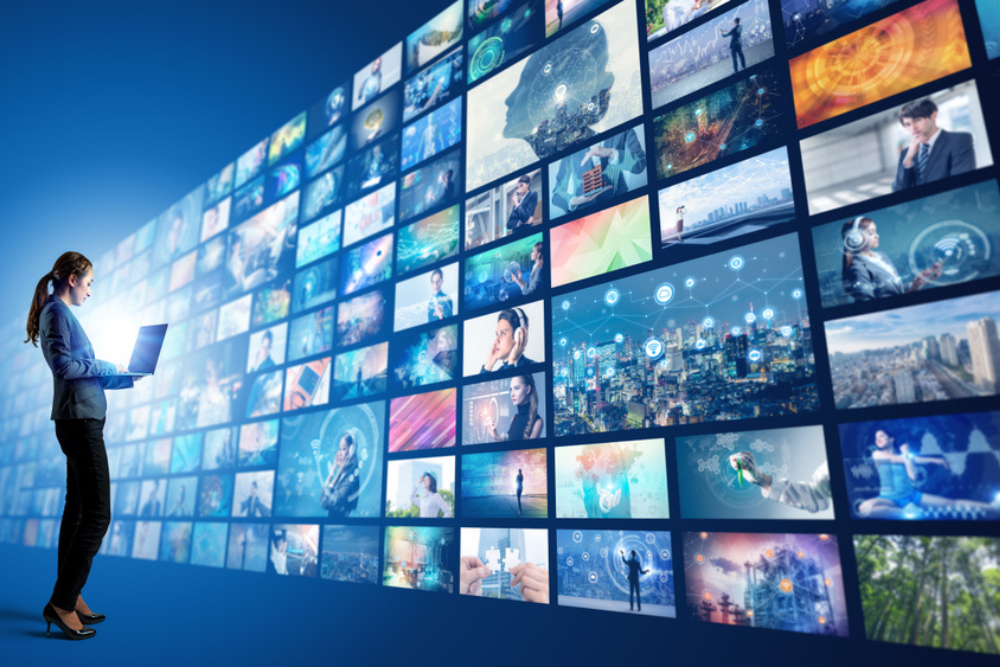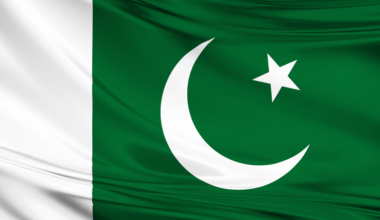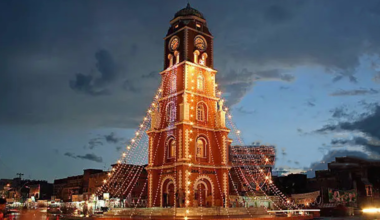Of the important media of information in our age the mention must be made of TV and Internet.
Almost every age is dominated by representative social characters that become not only the bearer of its cultural tradition but also assist in the direction of cultural evolution. In that sense, it is the TV anchor and journalist who, in my opinion, more than anyone else embodies the dominant type of our age. It is he who embodies the power to fashion, for good or for evil, the public mood and information. Especially, in the countries where the media is basking in the glory of its newfound freedom, a great deal depends on the manner and the spirit in which the media is able to wield that power and play its expanded role.
Our age has witnessed an unprecedented upsurge in individual liberty. Fundamental human rights are understood and enforced more widely than ever before. It is now established wisdom that man cannot be regarded as mere means; he is an end-in-himself. Dignity and worth of human personality and the belief in equal rights have become the articles of faith common to all rational humans. With this comes the responsibility to regard human personality as sacred that must not be exploited under any pretext. Farrago of false information undermines human capacity for clear-thinking. Now that the right to be informed is universally accepted and vastly exercised, with the freedom to inform comes the responsibility to correct what is false or distorted. It must also make sure that every individual must be freely allowed to play his or her role in the society. Human mind, particularly in the developmental years of its early growth, is prone to be impressed by the blarney of the ideology it’s born into.
Freedom of information necessarily implies freedom of expression, allowing any matter to be viewed from different perspectives. Unfortunately, freedom of expression is still deeply affected by the pressure groups in all countries that boast a free media. While in some countries one is under tremendous pressure so as not to be wrongly accused of ‘homophobic’ or ‘anti-Semitic’, for instance, in countries like Pakistan freedom of expression takes a backseat to the care that must be shown while discussing groups like the SSP and the Taliban. These elements, on the contrary, are free to declare their hostility to the State or any of its subjects and by recourse to terror and other subterranean devices can undermine the foundations of the established powers within the State.
The cause of the freedom of expression has triumphed in modern times because it is now evident that no progress in any direction is possible unless people are allowed to express their opinions freely. If the archaic religious, political, or economic order continues to carry the day in a society it is only because the ideas which challenge the foundations of that order have not yet been allowed in that society. When the light of freedom enters the night of ignorance and bigotry disappears. Little wonder, therefore, the men of narrow-minded religious interpretations shudder in the face of freedom of thought, although they are prepared to ignore the march of powerful terrorists across their frontiers.
No opinion can be assumed to be true without subjecting it to be refuted. Complete permission of challenging and refuting our opinion is the essential precondition for justifying our assumption of its truth for the purpose of action. On no other terms can a rational human mind have any assurance of being right in a matter. A rational conviction can only be secured by the fact that it has been freely and fully appealed but has not been shaken. Similarly the opinion of the minorities often represents neglected interests and must be heeded by any decent society.
The onslaught of modern knowledge on the shoulder of present-day ubiquitous media has indeed come as shock to many self-complacent religious and other philosophies, dislocating the hitherto solid corpus of irrational and one-sided opinions. Huge residues, though, have withstood the erosion simply because the popular opinion in the society wants them.
So much about the freedom of an individual to express his opinion. Now a word about the position of the modern media in this relation. With the ubiquity of television and increasing use of internet and social media the freedom of an ordinary individual to express himself can no longer be effectively curbed. The popularity of electronic media however does not mean that it has extra-privileges as some anchors seem to think and behave. Such freedom as the media now enjoys is not only because of the removal of the restrictions but also due to the tradition which has become firmly entrenched in the past couple of decades whereby the public opinion has to tolerate all opinions as long as they do not cause damage to individuals or endanger a minority.
Faced with pressures, such as mentioned earlier in this essay, when the media fails to guide the public opinion it then stets itself up to be exploited as an instrument for defeating the freedom of expression. The power of media, as we all know, is enormous. In countries like Pakistan and India it is currently probably the most powerful unarmed institution. It can work as instrument of sanitizing public life, of chastening public taste, and of leading the way in settling questions of public significance. On the other hand, it can demean itself by pandering to low and vulgar tastes and by profiting from the ‘sensational’. This was surely not so important in the past when the media was mostly limited to press and had limited power in most countries. With power must go, hand in hand, a sense of responsibility.
In developed countries the offending media is consigned to the judgment of public opinion. But in countries like ours where public opinion itself is too weak to act as a powerful brake, the responsibility of the media is doubled to not only exercise its powers conscientiously but also to guide and instruct the public opinion on important issues such as the spectre of religious extremism in Pakistan. Like in the developed countries, efforts should be invested in building a type of public opinion which will redound to the credit of the country and society. People act upon the picture that is created by the reporting they receive on the events. With individuality still not asserted and respected at all levels in our societies, public opinion is nothing but a forceful expression of our social and political environment, the making of which is exploited or misinformed at various grassroots levels. This public opinion, in the last resort is moulded by the media.
The world as it figures in the perception of the 21st century man is radically different from the world his predecessors were able to perceive. Important events all over the world are reported directly and live. Whatever important happened while we were asleep is reported to us while we are having our daily breakfast. Nothing is too irrelevant or too remote for the modern media to capture. With hundreds of channels competing everywhere, everything is news and what was news before is now a scoop. Live reporting provides us with luxury of checking the factual veracity, at the least. Considerable data on which our thinking and judgment depends is supplied by the media.

The complexity of our political, social, and economic problems cannot be fully comprehended by the common man. Here the TV anchor intervenes and tries to explain the intricate in simple and easily understandable jargon. An anchor who has the flair of employing an incisive expression has an unbounded opportunity of influencing us. The writers of serious books on current topics can no longer compete with the TV and social media in the matter of influencing public opinion. Their works are too long-winded for the impatient 21st century reader to get on with. We are eager to be taught, in a short time, the gist of their contribution rather than soaking in the beauty of their expression and the logic of their argument. Most of us are left with no temperament to read original works on important topics and are content to pick up from the TV or the internet about the prevailing opinions on the problems of our age. The attitude of most of us resembles that of the resident of a house who, when awakened by a neighbour with the cry: “wake up and run, a flood has entered the town!” before preparing to leave switched on the TV to see how serious the problem was. And then, upon validation, before fleeing for his life, ensured updating his Facebook status.
We are lucky in that the modern media affords us a direct perception of the events as they unfold. However, we are still hugely dependent on the media analyses for our perception of what our eyes see occurring. Our view ultimately is determined by the estimate that we have of the veracity of a particular news channel or the commentator and the extent to which we deem a report to be unbiased. Needless to say that our notion of unbiased is often just a means to feed our ‘confirmation bias’. Take any contemporary event, say, recent coup in Egypt or the war in Syria; in each case our reaction to these events is based not upon a direct perception of these events but upon the picture that is created in our mind by the spoken or electronic word presented by the media we follow.
The power which a journalist has today makes it important for him or her to have an intellectual background to be able to appreciate the historical and social significance of the events he or she has to cover. Also in addition to informing us the modern TV journalist must be able to amuse and entertain us without transgressing the limits of fair and accurate reporting. A journalist in our age must have a universal mind and a capacity for contemplating the totality of the social environment in which a given event is cast. In order to provide meaningful coverage of the past, he must know the whole. His viewpoint must never be narrow and parochial.
There is also a need for democratizing the media in some countries. For instance, in today’s Pakistan, major channels and newspapers are owned by a few select individuals who can air or express what they wish in the name of the public opinion. It is thus, in some case, the mere fact of a thing being reported by the major media channels which confer on it the status of public opinion. This monopolistic situation of media ownership must be corrected before the media in Pakistan can be made truly broad-based and democratic.







